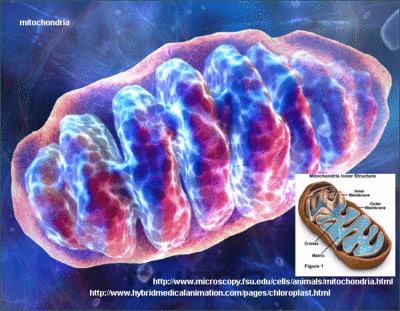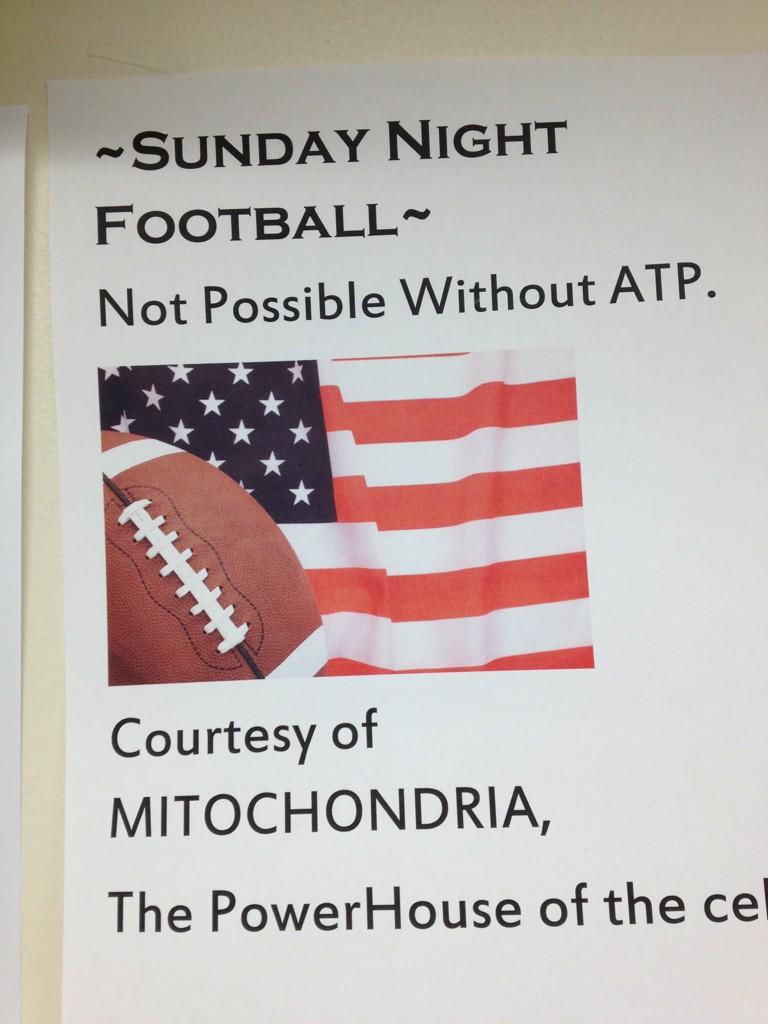Mighty Mitachondria – our body’s battery packs! In all our cells, they produce virtually all the power we need to live a healthy life. What’s the catch?
 Mitochondria can be damaged. Why does this matter?
Mitochondria can be damaged. Why does this matter?
Let’s look at what our mitochondria do for us:
• Produce ATP (energy) to fuel our metabolic engine
• Help to regulate communication between cells and tissues
• Increase their mass in response to an increased need for energy
• Help to regulate metabolism and use of nutrients
So what can go wrong?
• Mitochondria can be damaged by free radicals if there are not adequate antioxidants to neutralize them
• Damaged mitochondria contribute to a wide array of diseases such as diabetes, Alzheimer’s, bipolar disease, epilepsy, migraine headaches, strokes, Parkinson’s disease, coronary artery disease, chronic fatigue syndrome, fibromyalgia
• Aging diminishes the number and quality of our mitochondria which can be a factor in the loss of muscle mass and strength
• Mitochondrial dysfunction contributes in many ways to aging
• Can be easily damaged by mold, viruses, heavy metals and many drugs (click here for more)
What medications can damage mitochondria? (partial listing)
• Acetaminophen, aspirin, naproxyn
• Statins and other cholesterol lowering medications
• Psychoactive medications like Xanax and Valium
• Antidepressants
• Some antidiabetic medications such as metformin
So how can we protect our mighty mitochondria?
• Fortunately the mitochondrial can be repaired with a number of different nutritional supplements, and health can be restored – as long as the problem is recognized
• Nutritional supplements such as coenzyme Q10, antioxidants, acetyl-L-carnitine, lipoic acid, vitamin E, lutein and zeaxanthin
• A diet rich in fruits and vegetables (think “eating a rainbow” every day – reds, greens, yellows, oranges, purples)
• The essential micronutrient called pyrroloquinoline quinone or PQQ – actually stimulates the growth of new mitochondria! It is a super antioxidant found in foods such as parsley, green tea and green peppers

• The antioxidant called N-Acetyl cysteine which is so effective against free radical damage
Learn more about these mighty mitochondria. . .
 Mitochondria can be damaged. Why does this matter?
Mitochondria can be damaged. Why does this matter?
Let’s look at what our mitochondria do for us:
• Produce ATP (energy) to fuel our metabolic engine
• Help to regulate communication between cells and tissues
• Increase their mass in response to an increased need for energy
• Help to regulate metabolism and use of nutrients
So what can go wrong?
• Mitochondria can be damaged by free radicals if there are not adequate antioxidants to neutralize them
• Damaged mitochondria contribute to a wide array of diseases such as diabetes, Alzheimer’s, bipolar disease, epilepsy, migraine headaches, strokes, Parkinson’s disease, coronary artery disease, chronic fatigue syndrome, fibromyalgia
• Aging diminishes the number and quality of our mitochondria which can be a factor in the loss of muscle mass and strength
• Mitochondrial dysfunction contributes in many ways to aging
• Can be easily damaged by mold, viruses, heavy metals and many drugs (click here for more)
What medications can damage mitochondria? (partial listing)
• Acetaminophen, aspirin, naproxyn
• Statins and other cholesterol lowering medications
• Psychoactive medications like Xanax and Valium
• Antidepressants
• Some antidiabetic medications such as metformin
So how can we protect our mighty mitochondria?
• Fortunately the mitochondrial can be repaired with a number of different nutritional supplements, and health can be restored – as long as the problem is recognized
• Nutritional supplements such as coenzyme Q10, antioxidants, acetyl-L-carnitine, lipoic acid, vitamin E, lutein and zeaxanthin
• A diet rich in fruits and vegetables (think “eating a rainbow” every day – reds, greens, yellows, oranges, purples)
• The essential micronutrient called pyrroloquinoline quinone or PQQ – actually stimulates the growth of new mitochondria! It is a super antioxidant found in foods such as parsley, green tea and green peppers

• The antioxidant called N-Acetyl cysteine which is so effective against free radical damage
Learn more about these mighty mitochondria. . .





Recent Comments